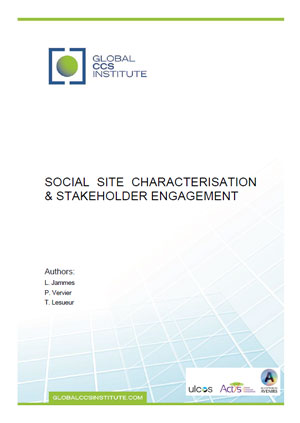Publications
Social site characterisation & stakeholder engagement
14th November 2013
Topic(s): Carbon capture use and storage (CCUS), Public engagement, Social research
The overall objective of this report is to propose a methodology targeted at creating the most favourable negotiating environment for all project stakeholders—including the project developer—to agree on project acceptability conditions. This process has been partially applied to a real CO2 Capture and Storage project: the ULCOS project (see below). This report provides four in-depth case studies detailing the critical early steps that a project most go through to first understand, then manage, the social environment in which a project is taking place. The case studies capture the context for each step in the process, as well as examples of the methodologies used, the results achieved and the lessons learned and recommendations for other projects. The case studies cover four stages in two phases, the first three explain the key stages in the social site characterisation phase, the fourth the enactment of a stakeholder engagement strategy.
Disclaimer
The content within the Global CCS Institute Publications, Reports and Research Library is provided for information purposes only. We make every effort and take reasonable care to keep the content of this section up-to-date and error-free. However, we make no claim as to its accuracy, currency or reliability.
Content and material featured within this section of our website includes reports and research published by third parties. The content and material may include opinions and recommendations of third parties that do not reflect those held by the Global CCS Institute.
